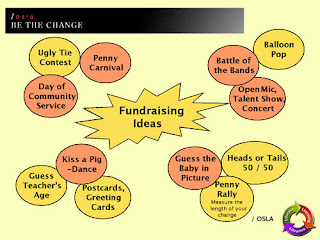Fundraising has become big business these days. As grant money and other forms of financial aid grow scarce, with competition growing more intense, some organizations have had to hire professionals to track down the much needed funds.

But what about the smaller, more community-based groups? With limited funding available, who wants to share a cut of the money pie with a professional fundraiser? Although an expert may locate and secure additional money, sometimes it's just not worth the added expense.
So, what can an organization do? There are many creative ideas floating around, which can bring in extra dollars, all while giving participants some fun at the same time.




